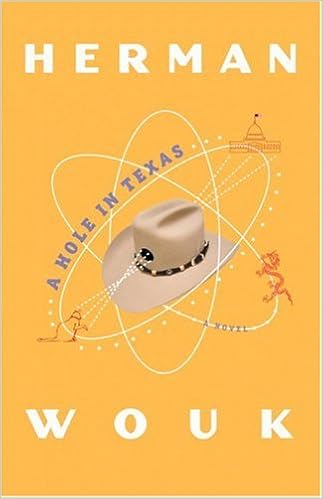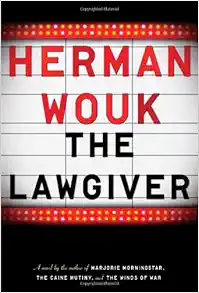
Description
From Publishers Weekly Still working more than 50 years after he won the Pulitzer for The Caine Mutiny , and more than 30 years after The Winds of War , Wouk, now nearly 90, has license to write what he pleases: in this case, a light, sprightly story about lost love, high-energy physics and the machinations of Washington. At 60, physicist Guy Carpenter is happily married and the father of two, including a new baby. In the late 1980s and early '90s, he worked on the Superconducting Super Collider, a gigantic federally funded project in Texas aimed at finding the elusive Higgs bosun subatomic particle. Congress pulled the plug on the SSC in 1993 in real life as well as in the novel professionally stranding Carpenter and leaving the Higgs bosun undiscovered. Ten years later, Carpenter has gotten his life back in order, but when a group of Chinese scientists publish a paper claiming to have discovered the Higgs bosun, his quiet existence is upended. Not only was Carpenter a key staff member on the SSC, he has sustained a secret romance since graduate school with Wen Mei Li, the chief scientist on the Chinese team. This confluence of circumstances puts Carpenter on the spot with his wife, the media, Congress and possibly the CIA. It also introduces him to a former movie star congresswoman, who's charmed by his intellect and sympathetic to his plight. The plot is busy but secondary to Carpenter's banter and romantic escapades. Occasionally corny but also playful, thoughtful and passionate, this first novel by Wouk in 10 years will charm fans with its companionable warmth and wry humor. Copyright © Reed Business Information, a division of Reed Elsevier Inc. All rights reserved. Herman Wouk (born May 27, 1915) is an bestselling American author, with a number of notable novels to his credit, including The Caine Mutiny, The Winds of War, and War and Remembrance. He was born in New York City, into a Jewish family that had immigrated from Russia, and received an A.B. from Columbia University. He was first a radio scriptwriter, and worked with Fred Allen, then in 1941 worked for the US government on radio spots selling war bonds. Wouk then joined the United States Navy and served in the Pacific Theater, an experience he later characterized as educational; "I learned about machinery, I learned how men behaved under pressure, and I learned about Americans." His first ship was the USS Zane, then he was second-in-command on the Southard. He started his writing career onboard, working on a novel during his off-duty hours. He married Betty Sarah Brown in 1945, with whom he had three sons, became a fulltime writer in 1946, and published his debut novel, Aurora Dawn in 1947. In 1952, The Caine Mutiny received the Pulitzer Prize. In 1998, he received the Guardian of Zion Award.
Features & Highlights
- Guy Carpenter is a physicist with a quiet, settled life: a prestigious job at NASA, a devoted wife and new baby, and a troublemaking cat. But he is about to get mixed up in an international scandal of enormous proportions. Years ago, Guy worked on the Superconducting Super Collider, a giant scientific project dedicated to detecting a tiny, elusive particle, the Higgs Boson. Wrangling in Congress shut the project down before it could fulfill its objective, but now the Chinese claim to have found the Boson-a discovery that sends the nation into a panic. How did the Chinese surpass American science? What about the horrific military implications of a Boson Bomb? Is it time to start casting Hollywood's first Boson blockbuster? An expert is needed to assess the new threat to national security. Before he knows it, Carpenter is propelled into the center of the media blitz, his old love with a Chinese female physicist resurfaces, a new romance with a beautiful Congresswoman beckons, and the breakup of his happy marriage threatens. In the meantime, Congress holds urgent hearings, Hollywood comes courting, and an unctuous reporter dogs his every step. It's going to be anything but a typical few weeks. Once again, Herman Wouk exercises his deep insight and considerable comic powers to give us a witty and keen satire about Washington, the media, and science, and what happens when these three great forces of American culture clash.



